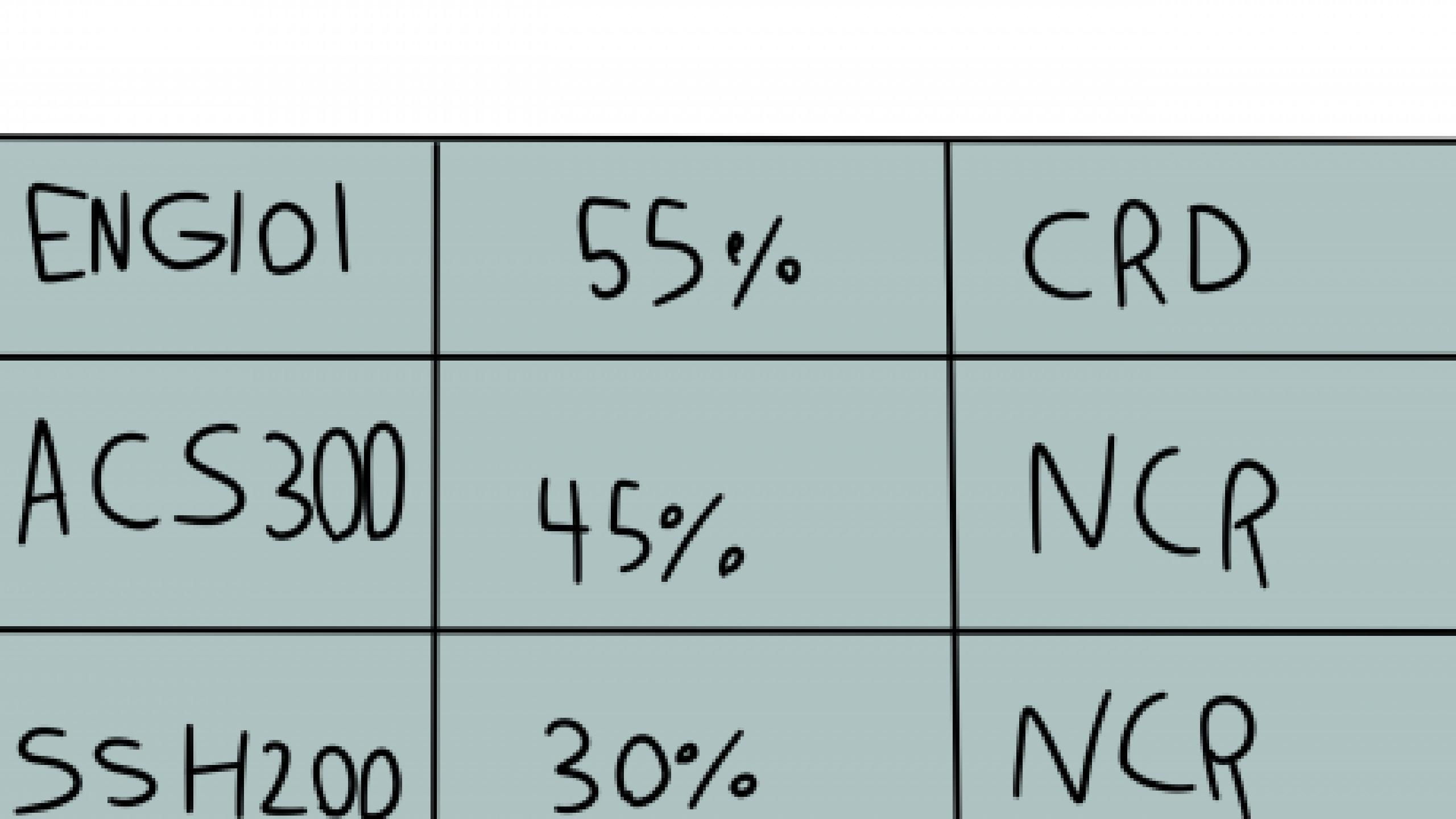By Sarah Tomlinson
Allowing students to pass or fail their courses without letter grades appearing on their transcript–even after the pandemic–could decrease their academic motivation, according to several Ryerson community members.
Corinne Hart, a Ryerson associate professor in nursing with expertise in student mental health, said students would be less motivated if they could always rely on the credit/non-credit option.
“They’ll think ‘If all that’s going to be on my transcript is a pass, then I’ll do the bare minimum because nobody will ever know,’” she said.
Dana MacMahon, a third-year early childhood studies student, said she’s taken some courses that were designed as pass/fail and didn’t like her experience.
“I just find school is so much longer than it needs to be because we have to take a lot of classes that don’t really seem applicable to real life,” she said. “If we are going to have these long, drawn out degrees, then you need a second motivator because not every class is going to be information you actually want to learn.”
In March 2020, a Ryerson student successfully petitioned for Ryerson to allow pass or fail grading in light of the pandemic, with over 3,000 signatures in favour of the system. Students had the option to either maintain an assigned letter grade, replace their letter grade with a credit grade or drop their course without academic penalty with a non-credit grade.
Recently, Ryerson Students’ Union (RSU) vice-president education Siddhanth Satish proposed a credit/non-credit (CRD/NCR) option for the fall 2020 semester to Ryerson’s vice-provost, students’ office. Another petition was also created.
Satish said that although Ryerson is considering the option for fall 2020, the university told him the option will most likely not be available for winter 2021 because students would be used to online learning.
Ryerson president Mohamed Lachemi said Ryerson wouldn’t be considering the CRD/NCR option offered indefinitely.
“Ryerson introduced the NCR option in response to the unforeseen immediate impact of COVID-19 which arrived in the midst of the winter 2020 term and caused disruption. It was part of the university’s response to help as many students as possible,” he said.
“Students can receive consideration of exceptional circumstances through the existing academic processes,” he added.
Lachemi encouraged students to use Ryerson’s academic resources—like the Student Learning Support program—that have been restored since the start of the pandemic to assist students in getting the grades they need to pass.
When considering whether the CRD/NCR option should be offered indefinitely, several Ryerson community members opposed the idea.
Ashan Mahendran, a third-year graphic communications management student and RSU Faculty of Communication and Design director, said graduate schools would find it harder to assess students if they had the pass/fail option because some may abuse it.
“If you’re applying for grad school, they’re going to check your transcript and if you CRD all your classes, they’re not going to let you in,” he said.
According to Ryerson’s grade scale for graduate studies, students must have at least a minimum passing grade of B- or an Acceptable Performance (PSD) in the case of a pass/fail graded course.
Hart noted that grades ensure that employers hire students who have a solid understanding of the material so they can adequately contribute to society.
“You don’t want students who really didn’t understand body systems going into an ICU for their fourth-year placement,” she said.
Furthermore, Hart said the pass/fail option doesn’t allow students to assess themselves or to feel proud of the work they complete. Because they only receive pass/fail grades, she said they aren’t aware of the progress they’re making in their assignments.
“Ultimately, I’m not sure it’s going to give the students what they need out of their education,” she said. “If we just make it easy, I don’t believe that people will feel that good about themselves either.”
Ester Shabani is a second-year business administration and management student and creator of the initial petition to make courses pass/fail at Ryerson. She said having a pass/fail option offered indefinitely could benefit students by giving them more academic freedom.
“It would give students that much more responsibility to have control over their futures,” she said.
Although she started the petition, she said she decided to keep her initial grades on her transcript last winter.
“That goes to show that not everyone takes complete advantage of the option. However, it is still nice to have because people go through a lot that isn’t always apparent,” she said.
Regardless of the decision made, MacMahon said it’s important for Ryerson to involve students and faculty.
“Everyone’s opinion matters because this is going to affect everyone in the system differently,” she said.
If the university were to make the shift to pass/fail, she said they would have to clearly communicate their decision.
“If [the university] just said pass fail and didn’t shift the narrative that what’s really important is to learn and we’re just doing pass/fail because it’s less stressful for students, I don’t think it would make a difference. I think if the messaging was always ‘We’re doing this because it will allow engaged learning in a very different way,’ then maybe it will be a good thing.”
“It’s about the overall messages that we give people around education, which I don’t think are good, from our social perspective. Some level of ranking is important, but we need to also make room for things beyond grades,” said Hart.
MacMahon said this decision is part of a debate about putting too much academic pressure on students.
“There’s a fine line between allowing some relief and being a little lenient, and then completely letting go and just coddling. People need to face challenges. Kids shouldn’t be induced into anxiety attacks because they can’t handle all this work, but they shouldn’t have no responsibility,” she said.
CORRECTION: A previous version of this article referred to the credit option as CR. The credit option appears on student transcripts as CRD. The Eyeopener regrets this error.










Leave a Reply